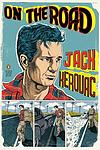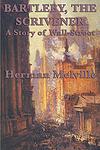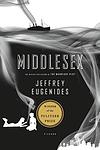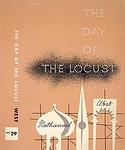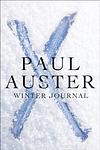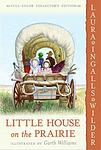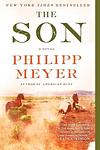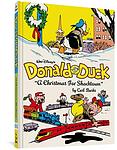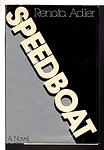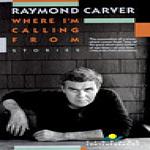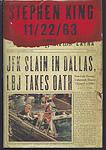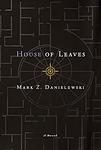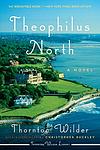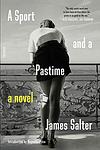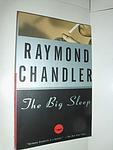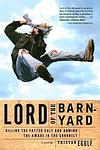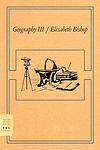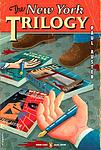Quintessential American Fiction, According to the Rest of the World
This is one of the 284 lists we use to generate our main The Greatest Books list.
-
The Catcher in the Rye by J. D. Salinger
The novel follows the story of a teenager named Holden Caulfield, who has just been expelled from his prep school. The narrative unfolds over the course of three days, during which Holden experiences various forms of alienation and his mental state continues to unravel. He criticizes the adult world as "phony" and struggles with his own transition into adulthood. The book is a profound exploration of teenage rebellion, alienation, and the loss of innocence.
-
Moby Dick by Herman Melville
The novel is a detailed narrative of a vengeful sea captain's obsessive quest to hunt down a giant white sperm whale that bit off his leg. The captain's relentless pursuit, despite the warnings and concerns of his crew, leads them on a dangerous journey across the seas. The story is a complex exploration of good and evil, obsession, and the nature of reality, filled with rich descriptions of whaling and the sea.
-
On the Road by Jack Kerouac
This novel follows the story of a young man and his friend as they embark on a series of cross-country road trips across America during the late 1940s and early 1950s. The protagonist, driven by a desire for freedom and a quest for identity, encounters a series of eccentric characters and experiences the highs and lows of the Beat Generation. The narrative is a testament to the restlessness of youth and the allure of adventure, underscored by themes of jazz, poetry, and drug use.
-
Light in August by William Faulkner
Set in the American South during the 1930s, this novel explores complex social and personal issues through the intertwining stories of its characters. The narrative primarily follows a man of ambiguous racial identity on a quest to find his father, a pregnant woman searching for the father of her unborn child, and a disgraced minister attempting to navigate his own moral compass. The book delves into themes of identity, race, and the human struggle for understanding and redemption, all set against the backdrop of the deep-rooted prejudices and social norms of the time.
-
American Psycho by Bret Easton Ellis
The novel is a disturbing and graphic exploration of the mind of a wealthy, young and handsome Wall Street investment banker who is also a psychopathic serial killer. He leads a double life, appearing to be a charming and sophisticated businessman by day, while indulging in horrific acts of violence and murder by night. The narrative provides a satirical critique of 1980s American consumer culture, vanity, and excess, while also delving into the dark underbelly of human nature.
-
The Adventures of Huckleberry Finn by Mark Twain
The novel follows the journey of a young boy named Huckleberry Finn and a runaway slave named Jim as they travel down the Mississippi River on a raft. Set in the American South before the Civil War, the story explores themes of friendship, freedom, and the hypocrisy of society. Through various adventures and encounters with a host of colorful characters, Huck grapples with his personal values, often clashing with the societal norms of the time.
-
As I Lay Dying by William Faulkner
The narrative unfolds through the eyes of 15 different characters over 59 chapters. It is the story of the death of Addie Bundren and her poor, rural family's quest and motivations—noble or selfish—to honor her wish to be buried in her hometown of Jefferson, Mississippi. As the Bundren family undertakes a journey to fulfill Addie's last wish, they face many hardships and personal revelations. The novel explores themes of existentialism, death, and the nature of family relationships.
-
Train Dreams by Denis Johnson
The novella captures the life of Robert Grainier, a day laborer in the American West during the early 20th century. Through a series of vignettes, it traces Grainier's experiences from his work on railroads and bridges to his personal tragedies, including the loss of his family and the profound changes in his way of life. Set against the backdrop of a rapidly transforming America, the narrative delves into themes of isolation, the ruggedness of the frontier, and the impact of industrialization on the natural world and the human soul. Grainier's story is one of quiet endurance and the haunting beauty of the landscape amidst the relentless march of time.
-
Lolita by Vladimir Nabokov
The novel tells the story of Humbert Humbert, a man with a disturbing obsession for young girls, or "nymphets" as he calls them. His obsession leads him to engage in a manipulative and destructive relationship with his 12-year-old stepdaughter, Lolita. The narrative is a controversial exploration of manipulation, obsession, and unreliable narration, as Humbert attempts to justify his actions and feelings throughout the story.
-
Infinite Jest by David Foster Wallace
This novel is a complex, multi-layered narrative that explores themes of addiction, recovery, and the human condition in a near-future society. The story is set in a tennis academy and a halfway house for recovering addicts, and it intertwines the lives of its numerous characters, including a gifted but troubled teenage tennis prodigy, his filmmaker father, and a group of Quebecois separatists. The book is known for its length, intricate plot, and extensive use of footnotes.
-
Bartleby the Scrivener by Herman Melville
"Bartleby the Scrivener" is a story set in Wall Street, revolving around a law firm clerk named Bartleby who, after initially proving himself a diligent employee, begins to refuse his boss's orders with the phrase "I would prefer not to." Despite being fired and even imprisoned, Bartleby continues his passive resistance until his eventual death. The narrative explores themes of isolation, the mechanization of the workplace, and the inexplicable nature of human behavior.
-
Underworld by Don DeLillo
"Underworld" is a sweeping narrative that spans from the 1950s to the end of the 20th century, exploring the interconnectedness of events and the impact of the Cold War on American society. The story revolves around a diverse group of characters, including a waste management executive, a graffiti artist, a nun, and a baseball collector, among others. These characters' lives intertwine in unexpected ways, illustrating the complex web of relationships and influences that shape our world. The novel is renowned for its vivid portrayal of historical events and its profound examination of themes such as memory, technology, and waste.
-
The Heart Is A Lonely Hunter by Carson McCullers
The novel explores the spiritual isolation of misfits and outcasts in a small town of the U.S. South. Its protagonist is a deaf-mute who becomes the confidant for various troubled souls including a black physician, a bitter labor activist, a lonely young girl, and a struggling café owner. Each pours their heart out to him, but he remains unable to respond, reflecting the deep human need for connection and understanding.
-
The Old Man and the Sea by Ernest Hemingway
An aging Cuban fisherman struggles with a giant marlin far out in the Gulf Stream, isolated from the world and from human help. For days, he fights the marlin alone, admiring its strength, dignity, and faithfulness to its identity—its destiny is as true as his as a fisherman. He finally kills the marlin, but sharks attack and devour it before he can return to the shore. The fisherman returns home empty-handed but remains undefeated, having proven his abilities to himself.
-
The Scarlet Letter by Nathaniel Hawthorne
Set in 17th-century Puritan Boston, this novel tells the story of a woman who conceives a daughter through an affair and struggles to create a new life of repentance and dignity. She is forced to wear a scarlet "A" on her dress as a sign of her adultery while her lover, a revered local minister, remains unnamed and unpunished. Throughout the book, themes of sin, legalism, and guilt are explored.
-
Light Years by James Salter
"Light Years" is a vivid and intimate portrayal of a couple's complex relationship over the course of their lives. The story follows a charismatic and successful couple living in a beautiful home near the Hudson River. As they entertain their friends with lavish parties, their seemingly perfect life begins to unravel, revealing the cracks in their marriage and the emptiness that lies beneath their glamorous lifestyle. The novel explores themes of love, happiness, and the passage of time, offering a poignant critique of the American dream.
-
A Confederacy of Dunces by John Kennedy Toole
The novel is a comedic satire set in New Orleans in the early 1960s, centered around Ignatius J. Reilly, a lazy, eccentric, highly educated, and socially inept man who still lives with his mother. Ignatius spends his time writing a lengthy philosophical work while working various jobs and avoiding the responsibilities of adulthood. The story follows his misadventures and interactions with a colorful cast of characters in the city, including his long-suffering mother, a flamboyant nightclub owner, a beleaguered factory worker, and a frustrated hot dog vendor.
-
Ragtime by E. L. Doctorow
Set in the early 20th century, this novel intertwines the lives of fictional characters with real historical figures, creating a vivid portrayal of America's past. The narrative follows the lives of an upper-class family in New Rochelle, New York, an African-American musician from Harlem, and a Jewish immigrant and his daughter, while also featuring historical figures like Harry Houdini, J.P. Morgan, and Henry Ford. The novel explores themes of wealth, race, and class, against a backdrop of significant historical events, such as the onset of World War I and the rise of the labor movement.
-
Middlesex by Jeffrey Eugenides
The book follows the life of Calliope Stephanides, a Greek-American hermaphrodite, who narrates her epic story starting from her grandparents' incestuous relationship in a small village in Asia Minor to her own self-discovery in 20th century America. The novel delves into themes of identity, gender, and the American dream, while also providing a detailed history of Detroit through the eyes of three generations of an immigrant family.
-
To Build A Fire by Jack London
This story unfolds in the harsh, unforgiving landscape of the Yukon Territory, where a man, accompanied only by a dog, embarks on a journey to meet his companions at a mining camp. Despite warnings about the perilous cold, he underestimates nature's power and his own vulnerability. As he struggles to survive against the extreme temperatures, his journey becomes a gripping tale of human resilience and the instinctual will to live. The narrative reaches its climax when he attempts to build a fire, a critical moment that tests his survival skills and ultimately reflects on the human condition and our place in the natural world.
-
Close Range: Wyoming Stories by Annie Proulx
"Close Range: Wyoming Stories" is a collection of short stories that depict the harsh, rugged life in Wyoming. The book portrays the lives of various characters, from ranchers to rodeo cowboys, who are struggling with poverty, loneliness, and the harsh physical environment. The stories are characterized by a strong sense of place, dark humor, and vivid descriptions of the western landscape. The characters' struggles with their harsh environment and personal demons create a poignant and often tragic portrait of life in the American West.
-
Damned If I Do by Percival Everett
This novel delves into the complex life of a protagonist who is a highly skilled emergency room doctor, grappling with the moral and ethical dilemmas that come with the territory of his profession. Beyond the high-stakes environment of the ER, he faces personal challenges, including a strained relationship with his son and the haunting memories of his deceased wife. The narrative explores themes of responsibility, redemption, and the search for meaning in a chaotic world, all while showcasing the protagonist's journey towards understanding and acceptance amidst the myriad challenges he faces. Through a blend of sharp wit and profound insights, the story examines the intricate balance between life and death, and the inevitable consequences of the choices we make.
-
Tenth of December by George Saunders
"Tenth of December" is a collection of short stories that explore themes of class, love, loss, and the struggle of human existence in contemporary America. The stories range from a young boy's confrontation with a pedophile, to a middle-class woman's encounter with a drug-addicted veteran, to a futuristic tale about neuropharmacology. The collection is known for its dark humor, social criticism, and exploration of the human condition.
-
A Mercy by Toni Morrison
"A Mercy" by Toni Morrison is a historical fiction novel set in the late 17th century in America. The story follows a young slave girl named Florens who is sold by her mother to a Dutch trader in exchange for a debt. Florens is then taken to a plantation in Virginia where she becomes part of a diverse group of women, including a Native American, a white indentured servant, and the plantation owner's wife. The novel explores themes of race, gender, and power dynamics as the women navigate their relationships with each other and the harsh realities of life in colonial America.
-
Sabbath's Theater by Philip Roth
"Sabbath's Theater" is a darkly humorous and sexually explicit novel about the life of a retired puppeteer, Mickey Sabbath. After the death of his long-time mistress, Sabbath embarks on a journey of self-exploration and reflection, contemplating his past relationships, his career, and his own mortality. The novel is a profound exploration of the human condition, the nature of desire, and the struggle to find meaning in a chaotic and often absurd world.
-
Miss Lonelyhearts by Nathanael West
This novel revolves around an advice columnist, who writes under the pseudonym "Miss Lonelyhearts", for a New York newspaper during the Great Depression. As he reads and responds to the desperate letters from the city's distressed and downtrodden, he becomes increasingly disillusioned and depressed, struggling with his own faith, identity, and the bleakness of the human condition. The protagonist's personal life also spirals out of control, entangling him in a series of complicated romantic relationships and leading to a tragic conclusion.
-
Dog Soldiers by Robert Stone
In this novel, a disillusioned war correspondent, a morally compromised professor, and a woman caught between them become embroiled in a dangerous plot involving heroin smuggling from Vietnam to California. As they navigate the treacherous landscape of addiction, violence, and betrayal, the characters are forced to confront the devastating consequences of their choices. The book explores the dark underbelly of the American dream and the brutal realities of war.
-
Revolutionary Road by Richard Yates
This novel revolves around Frank and April Wheeler, a young couple living in a Connecticut suburb during the mid-1950s. Struggling with the banality of their lives, they plan to move to France where they believe they will be able to live more fulfilling and enlightened lives. However, their plans are derailed by a surprise pregnancy and the pressures of societal expectations, leading to a tragic end. The book explores themes of conformity, the search for self-fulfillment, and the disillusionment of the American Dream.
-
U.S.A. Trilogy by John Dos Passos
The U.S.A. Trilogy is a series of three novels that chronicle the lives of various characters in the first half of the 20th century in the United States. The narrative intertwines the stories of twelve characters as they navigate the societal changes and upheavals of the era, including World War I, the Great Depression, and the rise of Hollywood. The author uses a unique narrative technique that combines traditional prose, newspaper-style headlines, biographies, and stream-of-consciousness writing to paint a vivid picture of American life during this period.
-
The Long Goodbye: A Novel by Raymond Chandler
This novel follows the story of a hard-boiled detective in Los Angeles who becomes embroiled in a complex case when he befriends a drunk named Terry Lennox. After Lennox's wife is found dead, Lennox disappears to Mexico and the detective is left to unravel the mystery. The detective then takes on another case of a missing husband, which becomes intertwined with the Lennox case, leading to a web of deceit, corruption, and murder. The detective's pursuit of the truth leads him through a gritty and corrupt world, testing his resolve and morality.
-
The Three Stigmata Of Palmer Eldritch by Philip K. Dick
"The Three Stigmata of Palmer Eldritch" is a mind-bending science fiction novel set in a future where humanity has colonized other planets. The story follows a group of individuals who become entangled in the mysterious and hallucinatory world of a powerful drug called Chew-Z. As they navigate through the blurred lines between reality and illusion, they must confront their deepest fears and question the nature of existence itself. With its thought-provoking themes and intricate plot twists, the book explores the boundaries of perception, identity, and the human condition.
-
Absalom, Absalom! by William Faulkner
This novel is a complex narrative about Thomas Sutpen, a poor white man who rises to power in the South, aiming to create a dynasty that would rival the old aristocratic families. However, his ambitions are thwarted by his own flawed decisions and the overarching racial and societal tensions of the era. The story is not told in a linear fashion but rather through a series of interconnected flashbacks and narratives, offering different perspectives on the same events. The book explores themes of family, class, race, and the destructive power of obsession.
-
The Tortilla Curtain by T. Coraghessan Boyle
The book in question explores the intersecting lives of two couples in Southern California: a wealthy, nature-loving pair and an undocumented Mexican couple who have come to the United States in search of a better life. Their worlds collide when the Mexican man is involved in a car accident with the American man, setting off a chain of events that highlights the stark contrasts and deep-seated prejudices between their disparate existences. The narrative delves into themes of immigration, the American Dream, racism, and environmentalism, painting a complex portrait of the challenges and moral dilemmas faced by individuals on both sides of the socio-economic and cultural divide.
-
Postcards From The Edge by Carrie Fisher
This novel offers a candid and humorous look into the life of a Hollywood actress recovering from drug addiction. Through a series of vignettes, letters, and diary entries, the protagonist navigates the complexities of her career, relationships, and family dynamics, all while trying to maintain her sobriety. Set against the backdrop of the glitzy yet shallow Los Angeles entertainment industry, the story provides a raw and insightful exploration of fame, mental health, and the journey towards self-acceptance.
-
Sweet Talk by Stephanie Vaughn
This book is a captivating collection of short stories that delve into the complexities of human relationships and the poignant moments that define our lives. Through a series of beautifully crafted narratives, the author explores themes of love, loss, and the bittersweet nature of human connection. With a keen eye for detail and a deep understanding of the human psyche, the stories in this collection offer a window into the souls of its characters, revealing their vulnerabilities, strengths, and the sweet talk that often masks their deepest fears and desires. Each story is a testament to the author's ability to weave tales that resonate with readers, leaving them with a profound sense of reflection on the intricacies of the human condition.
-
The Road by Cormac McCarthy
In a post-apocalyptic world, a father and his young son journey through a desolate landscape, struggling to survive. They face numerous threats including starvation, extreme weather, and dangerous encounters with other survivors. The father, who is terminally ill, is driven by his love and concern for his son, and is determined to protect him at all costs. The story is a haunting exploration of the depths of human resilience, the power of love, and the instinct to survive against all odds.
-
Suttree by Cormac McCarthy
Set in 1950s Knoxville, Tennessee, the novel follows the life of a man who has renounced his former existence of privilege to live among society's outcasts on the river. He is an educated man, who has chosen a life of fishing and surviving on the fringes of society. The narrative is filled with his encounters with various characters from the underbelly of the city, including criminals, prostitutes, and other outcasts. Despite his attempts to isolate himself, he finds himself drawn into the problems and tragedies of those around him.
-
Sweet Land Stories by EL Doctorow
This collection of five short stories delves into the darker aspects of American life, exploring themes of crime, poverty, and moral ambiguity. Each narrative in the compilation takes the reader on a journey through the underbelly of American society, from the struggles of a young girl kidnapped by her father to the tale of a woman who finds herself involved in a bizarre plot to steal a baby. The stories are rich in detail and character development, showcasing the author's ability to weave complex tales that challenge the reader's perceptions of right and wrong. Through these narratives, the collection paints a vivid picture of the complexities and contradictions of the American dream, revealing the often harsh realities that lie beneath its hopeful veneer.
-
The Collected Stories Of Lydia Davis by Lydia Davis
The collection is a compendium of short fiction that showcases the author's deftness in capturing the intricacies of human experience through precise, often experimental prose. The stories range from the very brief to the more developed, exploring themes of language, memory, and the often overlooked moments of everyday life. With a unique voice that combines wit, keen observation, and a mastery of form, the author challenges traditional narrative structures, inviting readers to engage with the text on multiple levels and to find meaning in the spaces between the words as much as in the words themselves. The result is a body of work that is both intellectually stimulating and emotionally resonant, cementing the author's reputation as a significant figure in contemporary literature.
-
The Adventures of Augie March by Saul Bellow
"The Adventures of Augie March" is a novel set in Chicago during the Great Depression. The story follows the life of Augie March, a poor but spirited boy growing up in a broken home, as he navigates his way through life. The narrative explores his various jobs, relationships, and adventures, as he constantly seeks his identity and place in the world. His journey is marked by a series of encounters with different people and experiences, each shaping him in unique ways.
-
The Pat Hobby Stories by F. Scott Fitzgerald
This collection of short stories revolves around the character Pat Hobby, a down-and-out screenwriter in Hollywood during the 1930s. Once successful during the silent film era, Hobby struggles to adapt to the changing landscape of the film industry and to find work in the talkies era. The stories humorously and sometimes poignantly depict his various misadventures, schemes, and attempts to regain his lost prestige within the studio system. Through Hobby's experiences, the narrative offers a satirical glimpse into the Hollywood film industry, highlighting the fickleness of fame and the desperation that often accompanies creative endeavors.
-
The Day of the Locust by Nathanael West
"The Day of the Locust" is a novel set in 1930s Hollywood, portraying the dark side of the American dream through the lives of its desperate characters. The protagonist, a young artist from the East Coast, finds himself disillusioned by the superficiality and decay of Hollywood society, which is filled with failed actors, charlatans, and lost souls. The narrative culminates in a violent riot, symbolizing the destructive power of frustrated dreams and the harsh reality of the American dream.
-
Kinder Than Solitude by Yiyun Li
This novel revolves around the intertwined lives of three friends from their youth in Beijing during the aftermath of the Tiananmen Square protests to their separate paths as adults in the United States and China. The mysterious poisoning of their friend, Shaoai, which occurred during their teenage years, casts a long shadow over their lives, influencing their relationships, personal development, and their ability to find solace and meaning in their adult lives. Through a narrative that weaves past and present, the story explores themes of memory, guilt, isolation, and the complex nature of human connections, revealing how the echoes of a moment can shape the course of a lifetime.
-
The Human Stain by Philip Roth
The Human Stain is a novel that explores the life of Coleman Silk, a classics professor in a small New England town who is forced to retire after accusations of racism. The story delves into Silk's personal history, revealing that he is a light-skinned African American who has been passing as a Jewish man for most of his adult life. His affair with a much younger, illiterate janitor further scandalizes the community. The novel examines themes of identity, race, and the destructive power of public shaming.
-
No Country for Old Men by Cormac McCarthy
This novel is a gripping tale of a cat-and-mouse chase set in the harsh landscape of 1980 Texas. After stumbling upon a drug deal gone wrong and a suitcase full of money, a Vietnam War veteran finds himself pursued by a relentless hitman. As the veteran attempts to keep himself and his wife safe, a local sheriff struggles to keep up with the increasing violence and brutality of the modern world. The narrative explores themes of fate, conscience, and circumstance, painting a bleak and riveting picture of the human condition.
-
The Buddha in the Attic by Julie Otsuka
"The Buddha in the Attic" is a historical novel that tells the story of Japanese picture brides migrating to America in the early 20th century. It follows their journey from their traditional homes in Japan to their new lives in California, their struggles with language barriers, cultural differences, and harsh working conditions. The book also explores their experiences during World War II when they and their American-born children were taken to internment camps. The narrative is presented in a collective first-person voice, providing a chorus of the women's viewpoints.
-
Winter Journal by Paul Auster
This book is a reflective and deeply personal memoir that navigates through the memories, sensations, and experiences of the author's life. Written from the second-person perspective, it offers an intimate look into the author's journey from childhood to the cusp of old age. The narrative delves into the physical experiences and emotional landscapes that have shaped him, from the joys and sorrows of love, the pleasures of the senses, to the scars and vulnerabilities of the body. It is a contemplative exploration of the author's life, examining the moments that have defined him, the paths taken and not taken, and the nature of memory itself. Through this introspective journey, the memoir presents a mosaic of a life lived with passion, curiosity, and an unyielding quest for meaning.
-
Still Can't See Nothin' Comin' by Daniel Grey Marshall
This novel delves into the complexities of human relationships and the unpredictability of life through the lens of its protagonist, navigating through a series of unforeseen challenges and encounters. Set against a backdrop that blends the mundane with the extraordinary, the narrative explores themes of love, loss, and the quest for meaning in a seemingly indifferent universe. The protagonist's journey is marked by moments of introspection and external conflicts that test their resilience and understanding of the world. Through a rich tapestry of characters and events, the story examines the depth of human emotions and the indomitable spirit to persevere in the face of uncertainty.
-
A Visit From The Goon Squad by Jennifer Egan
"A Visit from the Goon Squad" is an interconnected collection of stories about a group of characters whose lives intersect in the music industry. The narrative spans several decades, tracing the characters' journey from their youth to middle age. It explores themes of time, change, and the impact of technology on human relationships and the music industry. The novel is known for its experimental structure, including a chapter written as a PowerPoint presentation.
-
What Work Is by Philip Levine
This book is a profound collection of poetry that delves into the essence of manual labor, the struggles of working-class Americans, and the search for dignity within the grind of industrial life. Through vivid imagery and poignant narratives, the poems explore themes of identity, family, and the passage of time, capturing the soul of the American worker. The author's empathetic voice and keen observations offer a powerful reflection on what it means to work, to dream, and to endure in a landscape often defined by hardship and sacrifice.
-
Little House on the Prairie by Laura Ingalls Wilder
The book chronicles the adventures of a young pioneer family as they travel westward from Wisconsin to Kansas in the late 19th century. The family, consisting of a mother, father, and their three daughters, face numerous hardships and challenges along the way, including scarce resources, harsh weather conditions, and encounters with Native Americans. Despite these challenges, they manage to build a new life for themselves on the prairie, showcasing the resilience and determination of early American settlers.
-
Babbitt by Sinclair Lewis
"Babbitt" is a satirical novel that explores the life of a prosperous, middle-aged businessman living in a Midwestern city during the 1920s. Despite his apparent success and conformity to societal norms, the protagonist feels a deep dissatisfaction with his life and the monotony of his daily routines. This leads him to rebel against the conservative values of his community, resulting in personal and social upheaval. The book critically examines the American middle class and the pressures of conformism, materialism, and status anxiety.
-
The Fortress of Solitude by Jonathan Lethem
The novel follows the lives of two boys growing up in Brooklyn, New York in the 1970s. Despite their racial differences, one being white and the other black, they form a deep friendship bonded by their shared interest in comic books, music and a magical ring that grants them superpowers. As they grow older, their paths diverge due to their racial and societal differences, with one becoming a successful music journalist and the other succumbing to a life of crime. The book is a profound exploration of race, identity, friendship and the impact of gentrification.
-
American Pastoral by Philip Roth
This novel tells the story of Seymour "Swede" Levov, a successful Jewish-American businessman and former high school athlete from Newark, New Jersey. Levov's happy and conventional upper middle class life is ruined by the domestic social and political turmoil of the 1960s during the presidency of Lyndon B. Johnson, which in the novel is seen through the eyes of the narrator, Nathan Zuckerman, a budding writer who idolizes the Levovs. The novel portrays the impact of this turmoil on Levov and his family, particularly his rebellious daughter who becomes involved in revolutionary political activities.
-
The Son by Philipp Meyer
This epic novel spans over 200 years of Texas history, tracing the complex and bloody legacy of the McCullough family. It delves into the life of Eli McCullough, the family patriarch who was captured by Comanches as a boy and grew into a ruthless land and cattle baron. Through the perspectives of three family members across generations, the narrative explores themes of survival, power, and the transformation of the American West. The story weaves together the brutal realities of colonialism, the oil boom, and the relentless push of westward expansion, painting a vivid portrait of the American dream and its often violent pursuit.
-
Blonde by Joyce Carol Oates
The novel is a fictionalized account of the life of one of Hollywood's most enduring and enigmatic icons, Marilyn Monroe. It reimagines her life from her troubled childhood as Norma Jeane Baker through her rise to stardom and her tragic demise. The book delves into the complexities of her inner life, exploring her relationships, her struggles with fame, and her quest for love and identity. It presents a psychological portrait that blends fact with speculation, capturing the dichotomy between the public persona of the blonde bombshell and the private experiences of a woman both blessed and cursed by her beauty and allure.
-
A Supposedly Fun Thing I'll Never Do Again by David Foster Wallace
"A Supposedly Fun Thing I'll Never Do Again" is a collection of seven essays that blends humor, insight, and philosophical pondering. The author explores a wide range of topics, from the impact of television on contemporary literature to the despair of the American cruise industry, and even the nature of David Lynch's films. The book is a brilliant showcase of the author's unique ability to see the extraordinary in the ordinary, all while using his sharp wit and expansive intellect to explore the complexities of modern life.
-
Falconer by John Cheever
The novel follows the story of a man named Ezekiel Farragut, a university professor and drug addict who is serving time in Falconer State Prison for the murder of his brother. Through his experiences and interactions with other inmates, Farragut grapples with guilt, addiction, and the human condition, ultimately leading to his escape and a chance at redemption. The narrative explores themes of freedom, identity, and the complexities of familial relationships.
-
The Moviegoer by Walker Percy
The protagonist, a young stockbroker in New Orleans, is alienated, detached, and finds more reality in movies and books than in his everyday life. He searches for meaning in life, often through his relationships with his aunt and his cousin, while also dealing with existential dread and the impending reality of turning 30. This exploration of alienation and search for identity in the modern world won the National Book Award for Fiction.
-
The Great Gatsby by F. Scott Fitzgerald
Set in the summer of 1922, the novel follows the life of a young and mysterious millionaire, his extravagant lifestyle in Long Island, and his obsessive love for a beautiful former debutante. As the story unfolds, the millionaire's dark secrets and the corrupt reality of the American dream during the Jazz Age are revealed. The narrative is a critique of the hedonistic excess and moral decay of the era, ultimately leading to tragic consequences.
-
Donald Duck by Walt Disney Productions, Carl Barks
This book is a collection of comic adventures featuring the iconic character Donald Duck, one of Walt Disney Productions' most beloved characters. Created by Carl Barks, the stories within this volume showcase Donald's life in Duckburg, often involving his three nephews, Huey, Dewey, and Louie, as well as other familiar characters such as Scrooge McDuck and Daisy Duck. The comics are known for their blend of humor, adventure, and heart, as Donald finds himself in a variety of predicaments, from treasure hunts to battling villains, all while trying to maintain his somewhat temperamental but ultimately good-hearted nature. Through these stories, readers are taken on entertaining journeys that also impart moral lessons and showcase the importance of family, ingenuity, and perseverance.
-
On Self Reliance by Ralph Waldo Emerson
This philosophical essay champions the virtues of individualism and personal integrity, arguing that true self-reliance involves trusting oneself and embracing one's inner voice amidst societal pressures and external influences. The author posits that self-reliance is not only essential for personal growth and fulfillment but also for the development of a robust, independent society. Through a series of compelling arguments and reflections, the essay encourages readers to cultivate their own beliefs and values, to be self-sufficient in thought and action, and to recognize the inherent power and potential within themselves, free from the constraints of conformity and societal expectations.
-
The Last Gentleman by Walker Percy
"The Last Gentleman" is a novel about a disoriented and confused man from the South who suffers from a "nervous condition" that causes him to forget who he is. When he meets a young man dying from a brain tumor, he decides to leave his home in New York and travel with the man and his family back to the South. Throughout his journey, he attempts to discover his own identity and grapples with existential questions about life, love, and death.
-
Speedboat by Renata Adler
This novel follows a young woman reporter in New York City during the 1970s, as she navigates her professional and personal life. The book is written in a non-linear style, consisting of a series of vignettes, observations, and reflections, rather than a traditional narrative. The protagonist's experiences and thoughts on subjects such as race, politics, and the media form the core of the book, providing a snapshot of the social and cultural landscape of the time.
-
Where I'm Calling From by Raymond Carver
"Where I'm Calling From" is a collection of 37 short stories that delve into the lives of everyday people dealing with addiction, relationships, and hardship. The stories often depict characters in moments of crisis or reflection, grappling with their personal demons or past mistakes. The author's minimalist style and focus on ordinary life brings a sense of realism and relatability to these narratives, making them a poignant exploration of human struggle and resilience.
-
11 22 63 by Stephen King
"11/22/63" is a science fiction novel by Stephen King that follows the story of Jake Epping, a high school English teacher who discovers a portal that leads to 1958. After being convinced by his friend Al to use the portal to prevent the assassination of John F. Kennedy, Jake embarks on a journey through time to change the course of history. Along the way, he falls in love with a woman named Sadie and faces various obstacles that threaten to alter the timeline he is trying to change. The book explores themes of love, loss, and the consequences of trying to change the past.
-
S.C.U.M. Manifesto by Valerie Solanas
The text in question is a radical feminist manifesto that calls for the overthrow of the patriarchy and the establishment of a female-led society. It critiques the male-dominated world, attributing to men various social and moral failings, and proposes the creation of an all-female society as a solution to these problems. The work is known for its provocative and incendiary tone, advocating for drastic measures to achieve its vision of gender equality and female empowerment. It has been both criticized and celebrated for its uncompromising stance on gender relations and has left a lasting impact on feminist literature and movements.
-
To Kill a Mockingbird by Harper Lee
Set in the racially charged South during the Depression, the novel follows a young girl and her older brother as they navigate their small town's societal norms and prejudices. Their father, a lawyer, is appointed to defend a black man falsely accused of raping a white woman, forcing the children to confront the harsh realities of racism and injustice. The story explores themes of morality, innocence, and the loss of innocence through the eyes of the young protagonists.
-
The Virgin Suicides by Jeffrey Eugenides
The novel is a haunting and tragic tale of the five Lisbon sisters who live in suburban America in the 1970s. Their strict, overbearing parents keep them isolated from the world, leading to a sense of mystery and intrigue about the girls in their community. This fascination turns into morbid curiosity when one of the sisters commits suicide, and the remaining sisters become even more sheltered. The story is narrated by a group of neighborhood boys who are obsessed with the girls, and their suicides, trying to piece together the reasons behind their tragic ends.
-
Americanah by Chimamanda Ngozi Adichie
The novel follows a young Nigerian woman who emigrates to the United States for a university education. While there, she experiences racism and begins blogging about her experiences as an African woman in America. Meanwhile, her high school sweetheart faces his own struggles in England and Nigeria. The story is a powerful exploration of race, immigration, and the complex nature of identity, love, and belonging.
-
Dandelion Wine by Ray Bradbury
Set in the summer of 1928 in the idyllic town of Green Town, Illinois, the novel captures the experiences of a twelve-year-old boy as he explores the joys and mysteries of childhood. Through a series of vignettes, the protagonist navigates the adventures and discoveries of youth, from the excitement of new running shoes to the depths of fear and loss. The narrative weaves a tapestry of small-town life, encapsulating the bittersweet transition from the innocence of childhood to the complexities of adulthood, all while celebrating the magic of everyday moments and the poignant passage of time.
-
Slaughterhouse-Five by Kurt Vonnegut
The novel follows the life of Billy Pilgrim, a World War II veteran who has become "unstuck in time," experiencing his life events out of order. This includes his experiences as a prisoner of war in Dresden during the Allies' firebombing, his post-war life as a successful optometrist, his abduction by aliens from the planet Tralfamadore, and his eventual death. The book is a critique of war and a demonstration of the destructive nature of time, with a nonlinear narrative that reflects the chaos and unpredictability of life.
-
The Autobiography of Benjamin Franklin by Benjamin Franklin
This book is an autobiography of one of America's founding fathers, detailing his life from childhood to adulthood. The author shares his journey from humble beginnings as a printer's apprentice to becoming a successful inventor, writer, businessman, and statesman. The book provides an insight into his thoughts and philosophies on various subjects such as education, self-improvement, and public service, offering a unique look at the early American history through his eyes.
-
Tales Of The Jazz Age by F. Scott Fitzgerald
This collection of short stories encapsulates the exuberance and recklessness of the Jazz Age, offering a vivid tableau of the 1920s America. Through a variety of tales that range from the whimsical to the tragic, the book explores themes of youth, beauty, and the disillusionment that often comes with excess and moral ambiguity. The stories, characterized by their rich prose and complex characters, provide a critical yet nostalgic glimpse into a bygone era, showcasing the author's keen observations of his contemporaries and their pursuits of love, success, and identity amidst the backdrop of a society undergoing rapid change.
-
Collected Stories Of William Saroyan by William Saroyan
This collection brings together a rich tapestry of short stories by a celebrated American author, known for his keen observations of life, love, and humanity. Set primarily in the heart of California, these narratives traverse the simple yet profound experiences of everyday people, from the joys and sorrows of immigrant families to the poignant adventures of young boys growing up in a world filled with wonder and hardship. With a style that is both lyrical and straightforward, the stories in this anthology capture the essence of human resilience and the unbreakable spirit of community, making it a timeless reflection on the complexities of the human condition.
-
Collected Stories Of O. Henry by O. Henry
This collection brings together the masterful short stories of a gifted American writer, known for his wit, wordplay, and twist endings. Set primarily in early 20th-century America, the stories explore themes of love, sacrifice, and the ironies of life through a diverse cast of characters, from down-and-outers to the middle class. The author's keen observation of human nature and his distinctive blend of humor and pathos make these tales enduring classics. Each story showcases his ability to surprise readers with unexpected conclusions, making the collection a treasure trove of literary craftsmanship.
-
Tracy's Tiger by William Saroyan
This novel is a whimsical tale that explores the life of a young man and his imaginary tiger, which serves as a symbol of his untamed spirit and individuality. Set in San Francisco, the story delves into themes of love, freedom, and the search for meaning in a conventional society. As the protagonist navigates the complexities of adulthood and relationships, his invisible tiger acts as both a protector and a reminder of his inner wildness and dreams. Through a blend of humor and poignancy, the narrative celebrates the importance of embracing one's true self and the power of imagination in overcoming life's challenges.
-
What We Talk About When We Talk About Love by Raymond Carver
This collection of short stories explores the complexities of love through various perspectives. The narratives delve into the lives of everyday people, showcasing their struggles, their desires, and their failures. Love is depicted in its many forms, from passionate and romantic to destructive and obsessive, providing a raw and honest depiction of human relationships. The stories highlight how love can both heal and hurt, uniting and dividing people in unexpected ways.
-
House of Leaves by Mark Z. Danielewski
The novel is a complex and multi-layered narrative that revolves around a young man who comes across a manuscript written by a blind man about a documentary that doesn't appear to exist. The documentary is about a family who moves into a house that is larger on the inside than it is on the outside, with shifting walls and hallways that lead to impossible spaces. The novel is known for its experimental layout, with some pages containing only a few words and others filled with footnotes, different fonts, and sideways text, reflecting the disorienting and labyrinthine nature of the house itself.
-
Theophilus North by Thornton Wilder
Set in the 1920s in the fictional town of Newport, Rhode Island, this novel follows the adventures of a young and idealistic Theophilus North, who arrives with the aim of experiencing life to its fullest. Armed with a keen intellect, a charming personality, and a modest background, North takes on various roles—from tennis instructor to reader for the elderly—each offering him unique insights into the lives of the town's residents across different social strata. Through his interactions, North becomes a catalyst for change and self-discovery among those he encounters, all the while embarking on his own journey of personal growth and understanding the complexities of human nature. The narrative weaves a rich tapestry of characters and stories, reflecting on themes of class, friendship, and the pursuit of happiness.
-
The Love Of The Last Tycoon by F. Scott Fitzgerald
This novel, set in the golden age of Hollywood, revolves around the life and career of Monroe Stahr, a successful and enigmatic film producer who dominates the movie industry. As a reflection of the American Dream and the underbelly of Hollywood's glamorous facade, the story delves into Stahr's professional triumphs and personal tragedies, including his relentless pursuit of love following the death of his wife. Through the eyes of Cecelia Brady, the daughter of a studio executive and the narrator, the narrative explores themes of power, ambition, and the illusion of the American success story, all while providing a critical look at the inner workings of the Hollywood studio system.
-
The Swimmer by John Cheever
This narrative plunges into the life of a suburban man who decides to journey back to his home by swimming through all the pools in his neighborhood, a quest that at first appears whimsical and light-hearted. However, as he encounters various neighbors and confronts their reactions to him, the story gradually reveals the protagonist's deep personal losses and the disintegration of his life, both socially and financially. The journey becomes a poignant exploration of the passage of time, the unreliability of memory, and the disillusionment with the American Dream, ultimately leaving the protagonist—and the reader—with a profound sense of disorientation and existential despair.
-
Let It Come Down by Paul Bowles
This novel explores the journey of an American bank clerk who, disillusioned with his mundane life, moves to Tangier in search of freedom and adventure. However, his quest for liberation quickly descends into a nightmarish spiral of crime and moral disintegration. Set against the backdrop of post-colonial Morocco, the narrative delves into themes of alienation, the quest for identity, and the often-blurred line between the exotic dream and the harsh realities of cultural dislocation. Through vivid descriptions and a haunting atmosphere, the story presents a compelling examination of the consequences of fleeing one's life only to confront the inescapable truths of the self.
-
A Sport and a Pastime by James Salter
The book is a provocative and sensual narrative about an illicit affair between a young American man and a French girl in post-war France. Set in the picturesque town of Autun, the novel explores themes of desire, love, and the blurred line between reality and fantasy. The story is narrated by an unnamed observer, who paints a vivid picture of the couple's passionate relationship, their exploration of love and sensuality, and the inevitable tragedy that follows.
-
Mark Twain's (Burlesque) Autobiography And First Romance by Mark Twain
This book presents a humorous and satirical take on the autobiography genre, showcasing the author's early life and experiences in a light-hearted manner. It combines elements of burlesque with a fictional first romance, offering readers a glimpse into the author's imaginative and comedic talents. Through exaggerated tales and whimsical storytelling, the work playfully critiques the conventions of autobiographical writing, while providing entertaining insights into the author's perspective on his own life and the world around him. This blend of satire and fiction reflects the author's unique ability to engage and amuse his audience, making it a distinctive piece in his body of work.
-
Reflections In A Golden Eye by Carson McCullers
This novel is set on a Southern army base in the 1930s and delves into the complex, intertwined lives of an array of characters, including a highly disciplined Captain, his sensual wife, a watchful and enigmatic soldier, and a flamboyant and provocative houseboy. The narrative explores themes of repressed sexuality, obsession, and the tragic consequences of human frailty and isolation. As the characters' lives intersect in increasingly intimate and destructive ways, the story reveals the stark and often disturbing realities lying beneath the surface of military propriety and Southern social mores.
-
Amerika by Franz Kafka
This novel tells the story of a young immigrant, Karl Rossmann, who after an unfortunate incident is sent by his parents to America. The narrative follows his journey through a strange new world, where he encounters a variety of eccentric characters and experiences a series of bizarre and often surreal situations. Throughout his journey, the protagonist struggles with feelings of alienation and the harsh realities of the American Dream, while trying to navigate the complexities of life in a foreign land.
-
Beloved by Toni Morrison
This novel tells the story of a former African-American slave woman who, after escaping to Ohio, is haunted by the ghost of her deceased daughter. The protagonist is forced to confront her repressed memories and the horrific realities of her past, including the desperate act she committed to protect her children from a life of slavery. The narrative is a poignant exploration of the physical, emotional, and psychological scars inflicted by the institution of slavery, and the struggle for identity and self-acceptance in its aftermath.
-
The Big Sleep by Raymond Chandler
In this classic detective novel, a private investigator is hired by a wealthy family to resolve a blackmail issue involving the younger daughter. As he delves deeper into the case, he uncovers a web of deceit, murder, and organized crime. The detective's investigation is further complicated by his growing attraction to the older daughter, adding a layer of personal involvement to an already complex case. The novel is renowned for its gritty depiction of 1930s Los Angeles and its sharp, witty dialogue.
-
The Lost Weekend by Charles Jackson
This novel delves into the harrowing journey of an alcoholic writer over a five-day binge in New York City. Struggling with his addiction, the protagonist grapples with personal demons, societal expectations, and the impact of his choices on his health and relationships. The narrative provides a stark, unflinching look at the destructive nature of alcoholism, exploring themes of despair, denial, and the quest for redemption amidst the backdrop of 1940s America. Through its vivid portrayal of the protagonist's psychological turmoil and the physical toll of addiction, the book offers a poignant commentary on the human condition and the pervasive struggle against one's own darker impulses.
-
King Suckerman by George P. Pelecanos
Set in the vibrant and tumultuous 1970s Washington D.C., this gritty novel follows the lives of Dimitri Karras and Marcus Clay as they navigate the dangerous underworld of drug dealers and criminals. Their adventure begins with the purchase of a rare record, but quickly spirals out of control when they cross paths with a psychopathic drug dealer. The story is a thrilling ride through the streets of D.C., blending elements of blaxploitation and pulp fiction to create a vivid tapestry of friendship, violence, and the quest for redemption amidst the backdrop of a city and era fraught with tension and change.
-
Less Than Zero by Bret Easton Ellis
The novel is a bleak portrayal of the nihilistic and morally vacant lives of affluent teenagers in 1980s Los Angeles. The story follows a young college freshman returning home for winter break, only to find himself drifting through a world of casual drug use, vapid sex, and senseless violence. Disconnected from his emotions and the people around him, the protagonist observes the empty existence of his friends and the loss of humanity in a culture obsessed with materialism and hedonism, ultimately questioning the very nature of his own reality and purpose.
-
Lord Of The Barnyard by Tristan Egolf
The book is a darkly comedic and sprawling tale of a rural American outcast, whose life is marked by relentless misfortune and societal marginalization. The protagonist, with an extraordinary talent for animal husbandry, finds himself in constant conflict with the small-minded townsfolk and corrupt officials of his Midwestern community. His journey is one of epic struggle against adversity and the pettiness of small-town politics, culminating in a dramatic and chaotic rebellion that upends the social order of his world. The narrative weaves a rich tapestry of rural life, exploring themes of revenge, social injustice, and the quest for personal redemption.
-
A Heartbreaking Work of Staggering Genius by Dave Eggers
A Heartbreaking Work of Staggering Genius is a memoir that follows the life of a young man who, after the cancer-related deaths of his parents, is tasked with raising his 8-year-old brother. The book explores themes of death, family, and the responsibilities that come with sudden adulthood. It is a testament to the strength of the human spirit, showcasing the protagonist's journey through grief, financial struggles, and the challenge of raising a child, all while trying to navigate his own young adulthood.
-
Geography Iii by Elizabeth Bishop
This book is a collection of poems that delve into themes of geography, travel, and the nuances of human experience through the lens of physical and emotional landscapes. The poet employs precise imagery and a keen observational eye to explore the intersections between the external world and the internal, personal realm. Through a series of vividly crafted pieces, the collection navigates the complexities of belonging, loss, and identity, inviting readers to reflect on their own place in the world. The work is celebrated for its technical mastery, emotional depth, and the subtle yet profound connections it draws between the geographical and the personal.
-
A Rose for Emily by William Faulkner
"A Rose for Emily" is a Southern Gothic short story about the life of Emily Grierson, a woman from a once prestigious family who lives in isolation in her decaying mansion in a small Southern town. Emily's life is narrated through the eyes of the townspeople, revealing her struggles with her father's controlling nature, her romantic relationship with a man beneath her social status, and her descent into madness. The story is renowned for its unexpected and shocking conclusion, which reveals a dark secret Emily has been hiding in her home.
-
The Sound and the Fury by William Faulkner
The novel is a complex exploration of the tragic Compson family from the American South. Told from four distinct perspectives, the story unfolds through stream of consciousness narratives, each revealing their own understanding of the family's decline. The characters grapple with post-Civil War societal changes, personal loss, and their own mental instability. The narrative is marked by themes of time, innocence, and the burdens of the past.
-
The New York Trilogy by Paul Auster
"The New York Trilogy" is a collection of three detective stories that explore the nature of identity and the search for meaning. The stories are set in New York City and feature various characters, including a detective, a writer, and a professor, who are all engaged in their own personal quests. These quests often involve elements of mystery, existentialism, and introspection, and the stories are interconnected in various ways, creating a complex and thought-provoking narrative.
-
The Haunting of Hill House by Shirley Jackson
The book is a chilling tale that revolves around a group of four individuals who decide to stay in a notoriously haunted mansion to conduct a paranormal investigation. The main character, a shy, reclusive woman with a troubled past, becomes increasingly unstable as she experiences terrifying phenomena and becomes obsessed with the house. As the supernatural events escalate, the lines between reality and imagination blur, leading to a shocking and tragic conclusion.
-
Humboldt's Gift by Saul Bellow
This novel explores the friendship between a successful writer and his mentor, a once-celebrated poet now living in poverty and mental instability. As the protagonist navigates his own existential crisis amidst a life of material success, he reflects on the ideals of his mentor and the nature of art and personal ambition. The narrative grapples with themes of materialism, the purpose of art, and the spiritual emptiness of modern life.
Literary Hub, 100 Books
On the occasion of the 4th of July, we the asked the rest of the world for its opinion on American literature. In a deeply unscientific survey of nearly 50 writers, editors, publishers, critics, and translators, representing 30 countries, we asked them to name three quintessentially American books, and tell us about their choices.
Added about 1 month ago.
This list has a weight of 60%. To learn more about what this means please visit the Rankings page.
Here is a list of what is decreasing the importance of this list:
- List: only covers 1 specific country
- List: criteria is not just "best/favorite"
- List: only covers translated or foreign books than where voters are from
If you think this is incorrect please e-mail us at [email protected].


